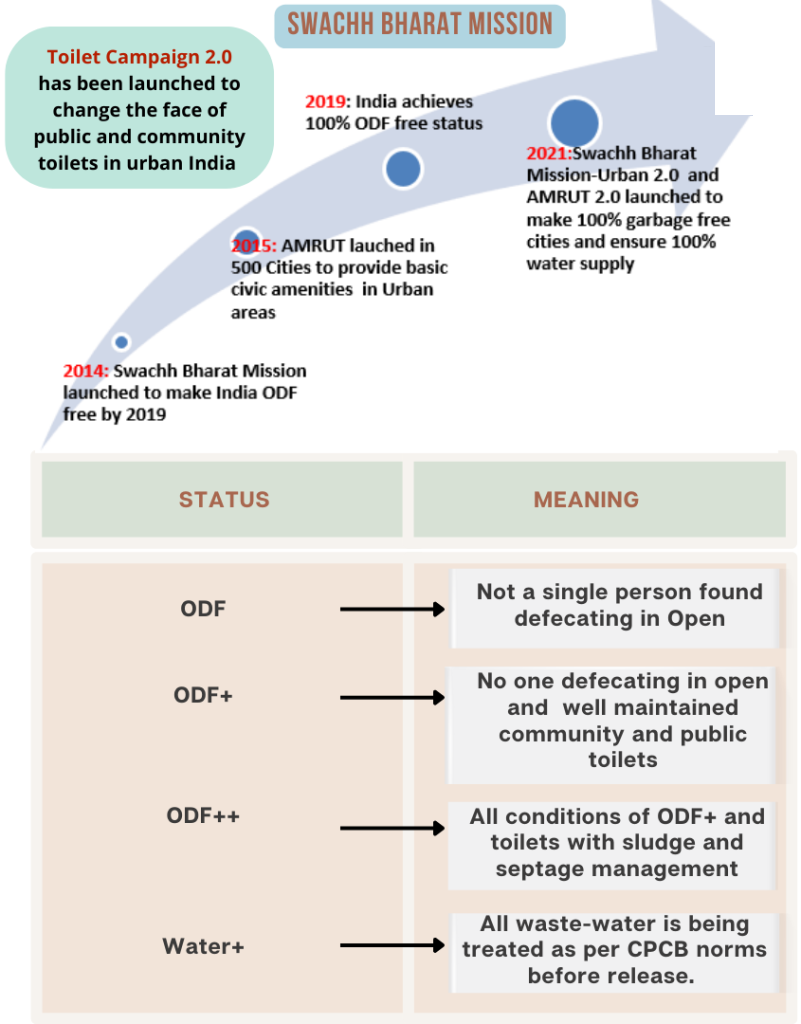How Swachh Bharat Mission advanced progress on safety and dignity, health and economy - Indian Express
Context
The recent release of the scientific report in the Nature journal on the Swachh Bharat Mission’s (SBM) impact on the reduction in infant and child mortality broadly coincides with the 10-year anniversary of the programme.
Swachh Bharat Mission (SBM)

- Launch: October 2, 2014
- Aim: To fulfil the vision of a cleaner India by October 2, 2019.
- Target: To eliminate open defecation, eradicate manual scavenging, and promote scientific solid waste management.
- Significance:
- Transformation of a Hidden Problem into a National Priority: Sanitation was historically a taboo topic in India. SBM addressed open defecation publicly, making it a matter of public urgency.
- A Vision to Change the Mindset Along with Infrastructure: SBM involved constructing 100 million toilets and creating a social movement.
Impact of Swachh Bharat Mission
|
Health Impact
|
- Reducing Child and Infant Mortality Rate: Saved 60,000 to 70,000 children under five annually by reducing waterborne diseases like diarrhoea.
- Reduction in Infectious Diseases: SBM's widespread toilet construction significantly reduced diseases like diarrhoea, cholera, and typhoid, improving child survival.
- Reduction in Overall Disease Burden: Eliminating open defecation fostered a culture of cleanliness, reducing infectious diseases across the population.
|
|
Economic Impact
|
- Financial Savings for Households: As per UNICEF, ODF status saves each household approximately Rs 50,000 annually due to reduced medical expenses, increased productivity, and time savings.
|
|
Social Impact
|
- Enhancing Dignity and Security for Women: Lack of toilets previously forced women to defecate in the open, risking harassment and assault.
|
Mahatma Gandhi International Sanitation Convention (October 2018)
- About: PM Modi and UN Secretary-General shared SBM experiences with Health and Sanitation Ministers from 55 developing countries.
- Key lessons from SBM (Delhi Declaration - Four Ps):
- Political Leadership
- Public Financing
- Partnerships
- People’s Participation
- Significance:
- These four Ps are now globally recognized as essential for large-scale development programs, especially in sanitation.
- Inspired initiatives like the Clean Nigeria Campaign.
Conclusion
The Swachh Bharat Mission has achieved significant success in its first decade having positive impacts on public health, economic savings, and social well-being. Success highlights the power of bold leadership, community participation, and sustained effort. SBM offers valuable lessons for other countries aiming for universal access to sanitation and clean water.